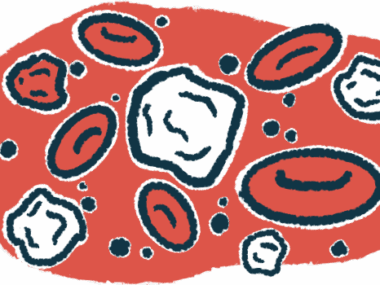The Importance of Self Advocacy: A Delayed Diagnosis Leads to Years of Uncertainty
This post is sponsored in partnership with UCB.
Written by |

A few years into medical school, Ronak was experiencing severe fatigue. He could barely keep his eyes open as he studied for his board exams. At first, he assumed that he was just tired and stressed from his long days of tests, lectures, rotations, and labs. Medical school was known to be all encompassing, so he continued to power through. For years, Ronak pushed through his busy schedule without addressing these issues. Looking back, he’s surprised that he was able to do it for so long.
Eventually, Ronak found that his symptoms became unmanageable, and they became hard to ignore. As his symptoms worsened, he had difficulty finding the energy for day-to-day tasks, from going to the gym to spending time with friends and family. He continued to experience extreme fatigue and muscle weakness, along with difficulty breathing and even choking episodes when eating.
Even with his medical knowledge, Ronak had a long road ahead. Oddly enough, Ronak had been tested for myasthenia gravis (MG) a few years back, but testing was negative. Despite the negative test, a neuro-ophthalmologist had Ronak tested again, and he finally received a more concrete diagnosis: Ronak was living with generalized myasthenia gravis (gMG).
Though Ronak was glad to finally have an answer, he found it bittersweet. “My suspicions that I could be living with gMG were correct all along,” Ronak says. “I had been close to the diagnosis for many years, and that delay caused a significant impact on my ability to function in school. It was all very frustrating.”
MG is a rare autoimmune disorder that results in a problem signaling between the nerves and the muscles.1,2 gMG is a more severe form of MG that can weaken muscles throughout the entire body. The disease can result in symptoms such as double vision, drooping eyelids, and difficulty swallowing, chewing, and talking.3,4 Individuals experience gMG in different ways, so symptoms can vary greatly. This can lead to delayed or incorrect diagnoses,5 including mental-health conditions like depression.6
For Ronak, the unpredictable nature of gMG took a mental toll on him. Navigating the healthcare system, explaining himself to others, and the social isolation he felt from not being able to leave the house were just a few of the challenges he faced on a day-to-day basis.
“I wasn’t functioning the way I used to, and I had this image of myself before and after gMG,” he shares.
After experiencing a delayed diagnosis, Ronak came to understand the importance of advocating for himself. He made an effort to be an active participant in his care, and pushed to find a treatment that would make a difference for him.
After 15 years of trial and error, Ronak’s doctor recommended RYSTIGGO® (rozanolixizumab-noli), a prescription medicine approved by the U.S. Food and Drug Administration (FDA) to treat adults with gMG who are anti-acetylcholine receptor (anti-AChR) antibody positive or anti-muscle-specific tyrosine kinase (anti-MuSK) antibody positive. These are the two most common subtypes of gMG.7
Since taking RYSTIGGO, Ronak’s symptoms have improved, and he has been able to start a new path forward. He works for a health-focused organization and enjoys going to the gym. While this was the case for Ronak, results may vary. The most common side effects of RYSTIGGO include headache, infections, diarrhea, fever, hypersensitivity reactions, and nausea. Talk to your doctor to choose the right treatment plan for you.
Ronak now works in the medical field for an organization that supports remote cardiac monitoring. He hopes that by sharing his story, he can encourage other MG patients to stay positive and keep trying treatments until they find one that works for them.
“My advice to those dealing with this condition is to take things one day at a time,” says Ronak. “A change in mindset truly makes a difference.”
To learn more about gMG and RYSTIGGO, visit www.rystiggo.com or speak with your doctor.
Ronak is a member of the UCB Advocates Network and is a paid consultant.
This publication is sponsored by UCB for educational and informational purposes. The views and statements contained in this publication reflect the speaker’s opinion, experience, or professional/clinical experience. These views do not necessarily reflect the views of UCB. All trademarks, logos, and brand names are property of their respective owners. Use of these names, trademarks, and brands does not imply endorsement or affiliation.
For more details about RYSTIGGO, see the Important Safety Information below.
RYSTIGGO INDICATION AND IMPORTANT SAFETY INFORMATION
What is RYSTIGGO?
RYSTIGGO is a prescription medicine used to treat adults with a disease called generalized myasthenia gravis (gMG) who are anti-acetylcholine receptor (AChR) antibody positive or anti-muscle-specific tyrosine kinase (MuSK) antibody positive.
What is the most important information I should know about RYSTIGGO (rozanolixizumab-noli)?
RYSTIGGO may cause serious side effects, including:
- Infection: RYSTIGGO may increase the risk of infection. In clinical studies, the most common infections were upper respiratory tract infections, COVID-19, urinary tract infections, and herpes simplex infections. Your healthcare provider should check you for infections before starting and during treatment with RYSTIGGO. Tell your healthcare provider if you have any history of infections. Tell your healthcare provider right away if you have signs or symptoms of an infection during treatment with RYSTIGGO. Some of the signs and symptoms may include fever, chills, frequent and/or painful urination, cough, runny nose, wheezing, shortness of breath, fatigue, sore throat, excess phlegm, nasal discharge, back pain, and/or chest pain.
- Aseptic Meningitis: RYSTIGGO could cause aseptic meningitis. Tell your healthcare provider right away if you develop any signs or symptoms of meningitis during treatment with RYSTIGGO such as severe headache, neck stiffness, drowsiness, fever, sensitivity to light, painful eye movements, nausea, and vomiting.
- Hypersensitivity Reactions: RYSTIGGO can cause swelling and rash. Your healthcare provider should monitor you during and after treatment and discontinue RYSTIGGO if needed. Tell your healthcare provider immediately about any undesirable reactions you experience after administration.
Before taking RYSTIGGO, tell your healthcare provider about all of your medical conditions, including if you:
- Have a history of infection or think you have an active infection
- Have received or are scheduled to receive a vaccine (immunization). The use of vaccines during RYSTIGGO treatment has not been studied, and the safety with live or live-attenuated vaccines is unknown. Administration of live or live-attenuated vaccines is not recommended during treatment with RYSTIGGO. Completion of age-appropriate vaccines according to vaccination guidelines before starting a new treatment cycle with RYSTIGGO is recommended.
- Are pregnant or plan to become pregnant or are breastfeeding or plan to breastfeed.
Tell your healthcare provider about all the medicines you take, including prescription and over-the-counter medicines, vitamins, and herbal supplements.
What are the possible side effects of RYSTIGGO?
RYSTIGGO may cause serious side effects, including:
- See “What is the most important information I should know about RYSTIGGO?”
The most common side effects of RYSTIGGO include:
- headache
- infections
- diarrhea
- fever
- hypersensitivity reactions
- nausea
These are not all the possible side effects of RYSTIGGO. For more information, ask your healthcare provider or pharmacist. Tell your healthcare provider about any side effect that bothers you or that does not go away. Call your healthcare provider for medical advice about side effects. You are encouraged to report negative side effects of prescription drugs to the FDA. Visit www.fda.gov/medwatch or call 1-800-FDA-1088. You may also report side effects to UCB, Inc. by calling 1-844-599-CARE [2273].
Please see the full Prescribing Information and talk to your healthcare provider about your condition or your treatment. For more information, go to www.RYSTIGGO.com or call 1-844-599-2273.
References
- Juel VC, Massey, JM. Myasthenia gravis. Orphanet J Rare Dis. 2007;2:44.
- Howard JF Jr., et al. Myasthenia gravis: The role of complement at the neuromuscular junction. Annals of the New York Academy of Sciences. 2018.
- Wolfe GI, Herbelin L, Nations SP, Foster B, Bryan WW, Barohn RJ. Myasthenia gravis activities of daily living profile. Neurology. 1999;52(7):1487-9.
- Diagnosis: Myasthenia gravis. 2023. https://www.nhs.uk/conditions/myasthenia-gravis/diagnosis/. Accessed October 2023.
- National Institute of Neurological Disorders and Stroke. Myasthenia gravis fact sheet. https://www.ninds.nih.gov/health-information/disorders/myasthenia-gravis. Accessed: December 2024
- Data on file. UCB, Inc., Smyrna, GA.
- RYSTIGGO [prescribing information]. Smyrna, GA: UCB, Inc.
RYSTIGGO® is a registered trademark of the UCB Group of Companies.
©2025 UCB, Inc., Smyrna, GA 30080. All rights reserved. US-RZ-2500224


